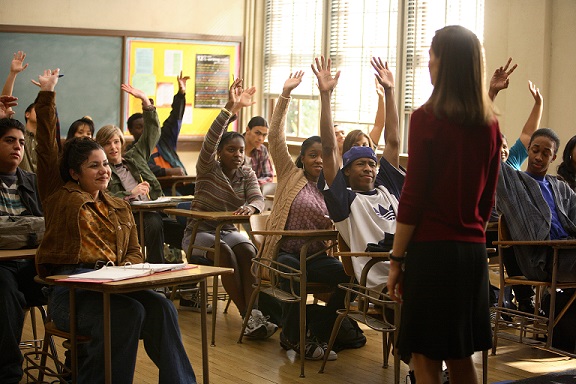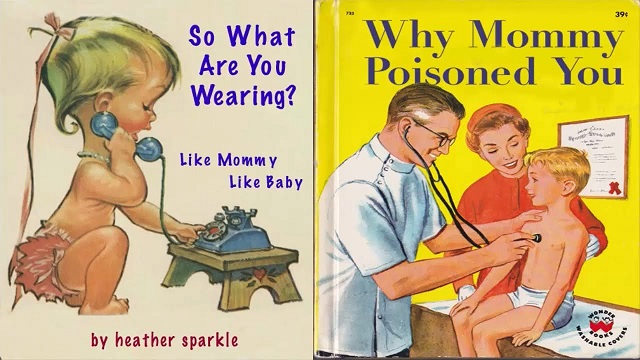 You may remember less than two months ago when Oklahoma Secretary of Finance Preston Doerflinger proudly announced the initial wave of the state’s budget woes – $900 million less projected revenue for the next fiscal year and a massive “revenue failure.”
You may remember less than two months ago when Oklahoma Secretary of Finance Preston Doerflinger proudly announced the initial wave of the state’s budget woes – $900 million less projected revenue for the next fiscal year and a massive “revenue failure.”
“The fact that we find ourselves in this position is providing us with a tremendous opportunity,” Doerflinger told reporters. “I’ve been talking for years about the structural problems the state faces. Now, we find ourselves in a very challenging situation. Panicking about the situation is not productive. We need to use this as an opportunity to do the things we otherwise might not have the will to do.”
As it turns out, the things they might not otherwise have the will to do meant massive cuts to public education and other services, but thousands – literally, numerically, THOUSANDS – of raises and new hires for state agencies. For the chosen bureaucratic favorites of our ‘small government’ Republican leadership.
As quoted by news9.com:
Doerflinger says the purpose of the freeze, primarily, was to add another layer of scrutiny to personnel decisions, especially those with the potential to impact the budget.
“And it’s caused conversations to occur.” Doerflinger stated, “And a higher level of scrutiny, as agency heads made decisions about hiring.”
OK. But… THAT’S NOT A FREEZE.
A freeze is when you stop doing something because you can’t anymore. What Doerflinger is describing is actually another layer of red tape in an already bloated process. At best it’s a ‘minor chilling’ of some sort.
Do any words actually MEAN THINGS to these people?
Doerflinger also announced in December that the budget crisis would mean AT LEAST a 2% – 4% cut ACROSS the BOARD. He neglected to add “Except for us. We’re going to be fine, because $#%& you commoners.”
He neglected to mention that they’d still prioritize eliminating any lingering revenue from the top sliver of the most successful in the state. If we can’t tax ourselves into prosperity, then eliminating taxes altogether means the state now has ALL the money, right?
As you watch me having my daily rhetorical seizures and you tire of the whining of educators around the state, please keep in mind that for all the talk of how helpless and hopeless and impotent and incapable state leadership suddenly insists they are in every possible way, they are
Objectively
Literally
Undeniably
Entirely
Intentionally
Maliciously
So full of $#&* I don’t know how they can walk without exploding. “It’s an opportunity,” he says – knowing damn well that at best it’s another excuse to do exactly what they did when oil was selling at 3x and 4x what it is now – funnel everything in their grasp to the chosen few, the elite specials, and piss on the rest of us.
We have a crisis, sure – FOR YOU. For the stupid and the busy and the easily frightened. For those of you too tired or in denial or simply unwilling to deal with the layers and layers of inanity. YOU have a crisis. You probably don’t have the time or energy to deal with it, however, because you’re trying to get through the day unbroken.
The elite leadership and their power structure don’t have a crisis – they have a bonus check. New work buddies. While you’re moving to off-brand mac’n’cheese, they’re lamenting having bumped into a higher tax bracket.
The Oklahoman, OKC’s major daily, recently called for #OklaEd bloggers to be more ‘civil’ on our #OklaEd website that allows people to use Twitter (they apparently aren’t much for the Interwebbing or the Facegramming). Using their best lofty old men-in-suits accent, they scolded us for not being more reasonable as we mutually address the challenges that blarglemugglefarfehnugen.
I have some civil discourse for them, for Gov. Fallin, Mr. Doerflinger, and everyone else slinging their pompous patronization around while smugly snickering at the unwashed masses and their sad state – er, as it were.
Kiss my big fat angry blogging ass, you sick twisted lying $#%&ers. You may beat us all while we’re here, but if you’re anywhere close to correct in all that theology you sling around to justify sh*tting on people, then ‘freezing’ is the precise opposite of what will soon be your biggest concern. Don’t worry, though – think of it as an amazing ‘opportunity’.




 #5 – Those who can, do; those who can’t, teach. I didn’t want to use this one because I thought it was too archaic. After reader feedback, however, it’s clearly not – they find it flung about like primate poo whenever education is discussed.
#5 – Those who can, do; those who can’t, teach. I didn’t want to use this one because I thought it was too archaic. After reader feedback, however, it’s clearly not – they find it flung about like primate poo whenever education is discussed. #4 – Teachers aren’t in it for the money (so abuse them at will and why pay them at all?) It’s true most of us didn’t sign up in order to tap into unlimited wealth and fame – but this is a false dichotomy. It presumes there are only two types of careers in the world – narcissistic, money-hungry, and exploitative, or caring, selfless, and would rather not get paid at all.
#4 – Teachers aren’t in it for the money (so abuse them at will and why pay them at all?) It’s true most of us didn’t sign up in order to tap into unlimited wealth and fame – but this is a false dichotomy. It presumes there are only two types of careers in the world – narcissistic, money-hungry, and exploitative, or caring, selfless, and would rather not get paid at all. #3 – The Number One Factor in a child’s education is the quality of his or her teacher.
#3 – The Number One Factor in a child’s education is the quality of his or her teacher.  #2 – Such and such kids will learn anyway / succeed anyway / be fine no matter how big their classes or who teaches them.
#2 – Such and such kids will learn anyway / succeed anyway / be fine no matter how big their classes or who teaches them.  #1 – If you’ll just do X, your students will Y – flip the class, eliminate grades, ask about their feelings, model enthusiasm, make it about the kids, make connections to real life, etc.
#1 – If you’ll just do X, your students will Y – flip the class, eliminate grades, ask about their feelings, model enthusiasm, make it about the kids, make connections to real life, etc. I don’t do many numbered lists, but I notice they’re going out of vogue and figured that was the perfect time to do one more. It’s like wearing cargo shorts, or getting excited about Kings of Leon.
I don’t do many numbered lists, but I notice they’re going out of vogue and figured that was the perfect time to do one more. It’s like wearing cargo shorts, or getting excited about Kings of Leon.  #10 – The students will make you crazy. There are certainly times that my students leave me frustrated, bewildered, or even frothing towards neurosis. They can be a difficult lot, no matter how many inspirational memes you retweet each week.
#10 – The students will make you crazy. There are certainly times that my students leave me frustrated, bewildered, or even frothing towards neurosis. They can be a difficult lot, no matter how many inspirational memes you retweet each week.  #9 – The teacher students like the best is the best teacher. This is not without elements of truth. It’s difficult to reach kids who DON’T like you, and teachers who are comfortable with and care about their students tend to give more, and get more from them.
#9 – The teacher students like the best is the best teacher. This is not without elements of truth. It’s difficult to reach kids who DON’T like you, and teachers who are comfortable with and care about their students tend to give more, and get more from them.  #8 – Teachers are afraid of accountability / Teachers’ unions are there to make sure their members aren’t held to any real standards. We, as a profession, are largely culpable for this perception. There are few things more horrifying to watch than a teachers’ strike on the news – horrible slogans, bad hair, and chants beginning with “2, 4, 6, 8…”
#8 – Teachers are afraid of accountability / Teachers’ unions are there to make sure their members aren’t held to any real standards. We, as a profession, are largely culpable for this perception. There are few things more horrifying to watch than a teachers’ strike on the news – horrible slogans, bad hair, and chants beginning with “2, 4, 6, 8…”  #7 – Teachers have it easy / Teachers work longer and suffer more nobly than any other profession in the history of mankind. We may overreact to tired old cracks about ‘having summers off’ and whatnot, but far sillier are our efforts to establish that we do, in fact, martyr ourselves in ways that leave slackers like Gandhi and Mother Theresa bathed in shame and inadequacy.
#7 – Teachers have it easy / Teachers work longer and suffer more nobly than any other profession in the history of mankind. We may overreact to tired old cracks about ‘having summers off’ and whatnot, but far sillier are our efforts to establish that we do, in fact, martyr ourselves in ways that leave slackers like Gandhi and Mother Theresa bathed in shame and inadequacy.  #6 – Such and such kids won’t learn no matter what you do.
#6 – Such and such kids won’t learn no matter what you do.